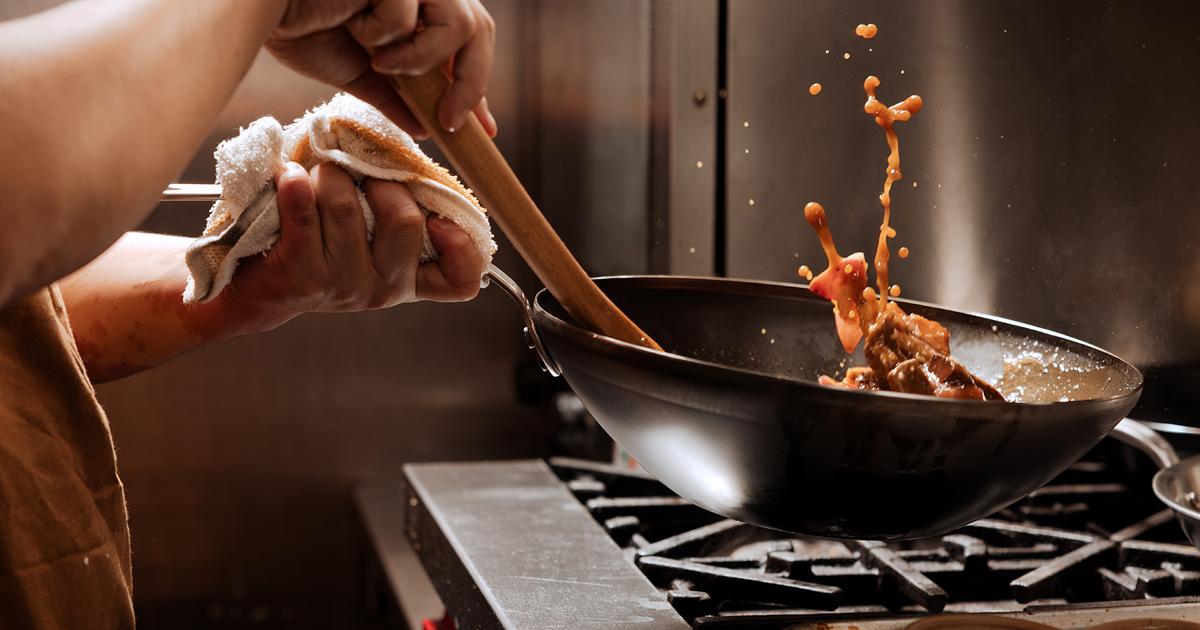How Long to Season a Wok for Optimal Grilling Results?
Written By James Morgan
Barbecue enthusiasts often find themselves delving into various cooking techniques and tools to enhance their grilling experiences. Among these tools, the wok stands out for its versatility and ability to impart unique flavors. But to achieve the best results, knowing how long to season a wok is crucial.
Introduction: Why Seasoning a Wok Matters
Seasoning a wok is an essential step that transforms a raw piece of metal into a non-stick cooking powerhouse. When properly seasoned, a wok can take your grilling and stir-frying to another level, ensuring that your barbecue endeavors are both delicious and efficient.

Understanding the Seasoning Process
Before diving into the specifics of how long to season a wok, its important to understand the seasoning process itself. Seasoning involves coating the woks surface with oil and heating it to create a durable, non-stick layer. This layer not only prevents food from sticking but also protects the wok from rust and imparts a distinct flavor to your dishes.

Initial Seasoning
Preparing Your Wok
The first step in seasoning your wok is to wash it thoroughly with warm soapy water to remove any factory coating. After rinsing and drying the wok, it's ready for the seasoning process.
Applying Oil
Lightly coat the entire surface of the wok with a high smoke point oil, such as vegetable oil or peanut oil. Avoid using too much oil, as it can pool and create uneven seasoning.
Heating the Wok
Place the oiled wok on a high heat source and let it heat until it begins to smoke. This step ensures that the oil bonds to the metal, creating a non-stick layer. Rotate the wok to ensure even heating.
Repeating the Process
For optimal results, repeat the oiling and heating process several times. This repetitive action builds multiple layers of seasoning, enhancing the woks performance.

How Long to Season a Wok
The total time to season a wok depends on several factors, including the type of wok, the oil used, and the number of times you repeat the seasoning process. Generally, initial seasoning can take anywhere from 1 to 3 hours.
New Wok Seasoning
For a brand new wok, its recommended to season it at least three times. This means the entire process of oiling and heating should be repeated at least three times for a total time commitment of around 2 to 3 hours.
Maintaining Seasoned Wok
Once your wok is seasoned, maintaining its non-stick surface requires regular care. After each use, clean the wok with hot water and a soft sponge. Avoid using soap, as it can strip away the seasoning. Lightly oil the wok after cleaning to maintain its seasoned surface.

Factors Affecting Seasoning Time
Several factors can influence how long to season a wok effectively:
- Type of Wok: Carbon steel woks usually require more seasoning than cast iron woks due to their reactive nature.
- Type of Oil: Oils with high smoke points like peanut oil or grapeseed oil are ideal for seasoning.
- Heat Source: Higher heat sources can speed up the seasoning process, while lower heat sources may require more time.
- Frequency: Regular use and re-seasoning will decrease the time needed for future seasoning sessions.
For more detailed steps on maintaining your seasoned wok, check out our guide on fixing a wok that sticks.
Common Mistakes to Avoid
Understanding common mistakes can save you time and effort while seasoning your wok:
- Using Too Much Oil: Excess oil can create a sticky surface instead of a non-stick layer.
- Skipping Steps: Each step of the seasoning process is crucial for optimal results.
- Not Heating Evenly: Uneven heating can lead to patchy seasoning, affecting the wok's performance.
- Using Soap: Soap can strip away the seasoned layers, negating your hard work.
For more tips on optimizing your wok, read our guide on tempering a wok.
Additional Tips for Barbecue Enthusiasts
As barbecue enthusiasts, youll appreciate the versatility a well-seasoned wok brings to your grilling toolkit:
Grilling on a Wok
A seasoned wok can be used directly on the grill to stir-fry vegetables, make smoky charred meats, and even cook complex dishes right next to your main grilling items. This can add an extra dimension to your barbecue experience.
For more ways to integrate your wok into grilling, check out our benefits of a wok article.
Using a Wok for Smoking
Seasoned woks arent just for stir-frying. You can use your wok as a makeshift smoker by adding wood chips and covering it with foil. This method can infuse a smoky flavor into meats and vegetables, enhancing your barbecue repertoire.
For more creative tips and tricks, visit Marions Kitchen.
FAQ
Q: Can you over-season a wok?
A: Over-seasoning a wok usually refers to using too much oil, leading to a sticky surface. Its best to apply thin, even layers of oil during the seasoning process and gradually build up the layers.
Q: How can I tell if my wok is properly seasoned?
A: A properly seasoned wok will have a dark, almost black patina and a smooth, non-stick surface. If food sticks or the wok appears patchy, additional seasoning may be required.
Q: How often should I re-season my wok?
A: Re-seasoning frequency depends on how often you use and clean your wok. If the wok starts to lose its non-stick properties, its time for a light re-seasoning. Regular maintenance with a small amount of oil can extend the time between full re-seasoning sessions.
As an Amazon Associate, I earn from qualifying purchases.



